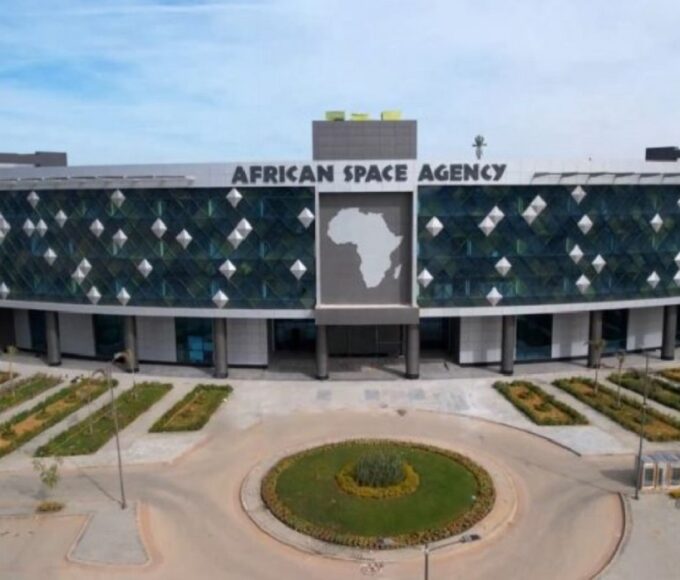THE EVOLVING CYBERSECURITY FRONTIER IN AFRICA

Africa’s cybersecurity landscape is rapidly transforming as digital adoption surges across the continent, driven by expanding internet access, mobile penetration, and e-government initiatives. With over 500 million internet users, African nations are increasingly vulnerable to cyber threats, prompting the establishment of specialized cyber command units and response teams.
These units, often integrated into military or national security frameworks, focus on defending critical infrastructure, conducting cyber operations, and fostering international cooperation. Leading countries are investing in legal frameworks, technical capabilities, and capacity building, as highlighted in recent reports like the INTERPOL Africa Cyber threat Assessment 2025, which notes a sharp rise in cyber-related crimes.
This evolution marks a shift from reactive measures to proactive cyber defence strategies, positioning Africa as an emerging player in global cybersecurity.
RISING CYBER THREATS ACROSS THE CONTINENT
Cyber threats in Africa have escalated dramatically, with incidents ranging from ransomware attacks on financial institutions to state-sponsored espionage targeting government networks. The INTERPOL report reveals that two-thirds of African countries report cyber offenses constituting a medium-to-high share of all crimes, with Southern Africa facing sophisticated AI-driven attacks.
Countries like South Sudan, Ethiopia, and Nigeria top the list for attempted cyber-attacks in 2025, underscoring the urgency for robust defences. Economic losses from cybercrime are projected to reach billions annually, affecting sectors such as banking, healthcare, and energy. This threat landscape has catalysed the formation of cyber command units, blending military expertise with civilian oversight to mitigate risks and enhance resilience.
South Africa stands out as a leader in African cybersecurity, boasting one of the continent’s most advanced ecosystems through its Directorate Information Warfare, a military unit dedicated to cyber operations and defence. Established within the South African National Defence Force, this directorate focuses on information warfare, including cyber intelligence and protection of national assets. The country ranks highly in global indices, with substantial investments in awareness campaigns and legal frameworks, as noted in Kearney’s call-to-action report. South Africa’s role is further amplified by its hosting of regional summits and collaboration with international partners, making it a model for integrating cyber commands into broader national security strategies.
Nigeria has made significant strides with its Cyber Warfare Command, a specialized military unit aimed at combating cyber threats through offensive and defensive operations. Launched to address the country’s high volume of cyber incidents, the command operates under the Nigerian Armed Forces, emphasizing training, intelligence gathering, and rapid response. Recent amendments to the Cybercrimes Act have bolstered sectorial Computer Emergency Response Teams (CERTs), enhancing coordination across government and private sectors. As Africa’s most populous nation and a digital economy hub, Nigeria’s initiatives, including partnerships with global firms, position it as a frontrunner in West Africa, despite challenges like lack of adequate funding.
Egypt is advancing its cybersecurity posture with designated military units responsible for cyber operations, including a new division focused on defending institutions from attacks. The country’s C5ISR (Command, Control, Communication, Computers, Cyber, Intelligence, Surveillance, and Reconnaissance) system, developed domestically, integrates cyber elements into military command structures, ensuring interoperability and security. Ranked in Tier 1 of the ITU Global Cybersecurity Index 2024, Egypt excels in legal and technical measures, with ongoing investments in innovation centres and international cooperation. This strategic approach has helped Egypt counter regional threats, solidifying its leadership in North Africa.
Morocco is emerging as a cybersecurity innovator with its Royal Armed Forces Cyber Centre of Excellence, a military-led unit that trains personnel in cyber defence and operations. The country has launched the Cyber Security Centre for Africa in Marrakech and a Cybersecurity Innovation Centre, fostering continental collaboration and research. Achieving Tier 1 status in the 2024 GCI, Morocco’s national strategy emphasizes capacity building and partnerships, such as joint training with the U.S. These efforts address growing threats while positioning Morocco as a bridge between Africa and Europe in cyber resilience.
Kenya, Ghana, and Mauritius are rising stars, each with advanced response mechanisms like Kenya’s National KE-CIRT/CC and NC4 units for cybercrime prosecution, Ghana’s strong legal frameworks, and Mauritius’s top-tier organizational measures. Kenya’s draft 2025-2029 Cybersecurity Strategy prioritizes national security, while all three nations score highly in the ITU’s 2024 index for cooperation and capacity development. These countries lead in innovation, with Mauritius ranking first in Africa for its comprehensive pillars, including international alliances. Their progress highlights a shift toward proactive, tech-driven cyber commands in East and Southern Africa.
Despite advancements, Africa’s cyber command units face hurdles like limited funding, skill shortages, and uneven infrastructure, with many countries still lagging in global rankings. Interstate cooperation remains fragmented, though initiatives like the African Union’s cybersecurity framework offer promise. Looking ahead, increased investment in AI, training, and public-private partnerships will be crucial, as projected in reports forecasting market growth to $3.7 billion by 2025. By building on leaders like South Africa and Nigeria, Africa can forge a unified front against cyber threats, ensuring a secure digital future.
- Africa’s Cybersecurity Revolution: From Digital Growth to Military Cyber Commands
- AI-Driven Cyber Attacks in Africa: The New Frontier of Digital Warfare
- and Global Partnerships
- and Mauritius: Emerging Cybersecurity Leaders in Africa
- Building Africa’s Cyber Future: Challenges
- Egypt’s C5ISR System: Military-Grade Cyber Defence in North Africa
- Ghana
- Innovations
- INTERPOL Cyber Threat Assessment 2025: What It Means for African Nations
- Kenya
- Morocco’s Cyber Centre of Excellence: Bridging Africa and Europe
- Nigeria’s Cyber Warfare Command: Leading West Africa’s Digital Defence
- Rising Cyber Threats in Africa: How Nations Are Responding in 2025
- South Africa’s Directorate Information Warfare: A Cybersecurity Powerhouse
King Richard Igimoh, Group Editor ALO
King Richard Igimoh, Group Editor African Leadership Organisation is an award-winning journalist, editor, and publisher with over two decades of expertise in political, defence, and international affairs reporting. As Group Editor of the African Leadership Organisation—publishers of African Leadership Magazine, African Defence & Security Magazine, and Africa Projects Magazine—he delivers incisive coverage that amplifies Africa’s voice in global security, policy, and leadership discourse. He provides frontline editorial coverage of high-profile international events, including the ALM Persons of the Year, the African Summit, and the African Business and Leadership Awards (ABLA) in London, as well as the International Forum for African and Caribbean Leadership (IFAL) in New York City during the United Nations General Assembly.
Recent Posts
Categories
- Air & Aerospace16
- Border Security15
- Civil Security4
- Civil Wars4
- Crisis5
- Cyber Security8
- Defense18
- Diplomacy19
- Entrepreneurship1
- Events5
- Global Security Watch6
- Industry8
- Land & Army8
- Leadership & Training5
- Military Aviation5
- Military History27
- Military Speeches1
- More1
- Naval & Maritime9
- Resources2
- Security12
- Special Forces1
- Systems And Technology9
- Tech6
- Uncategorized3
- UNSC1
- Veterans6
- Women in Defence9
Related Articles
SYSTEMS & TECHNOLOGY – THE CASE FOR SMART BORDERS IN AFRICA
On the continent of Africa, vast and varied landscape, borders often act...
ByKing Richard Igimoh, Group Editor ALODecember 11, 2025SYSTEMS & TECHNOLOGY – AFRICAN SATELLITE PROGRAMS: STRATEGIC GAME CHANGERS?
Across Africa’s 30 million square kilometers where borders stretch thin and climate...
ByKing Richard Igimoh, Group Editor ALONovember 19, 2025Counterinsurgency in the Age of Social Media: Hashtag Wars and the Battle for Minds
At 2:37 a.m. on a humid night in northern Mozambique, a short,...
ByKing Richard Igimoh, Group Editor ALOAugust 11, 2025Unmanned Warfare: The Future of African Air and Land Defence Systems
Unmanned systems are rapidly redefining how African militaries approach reconnaissance, strike capability,...
Byadmag_adminJuly 3, 2025












